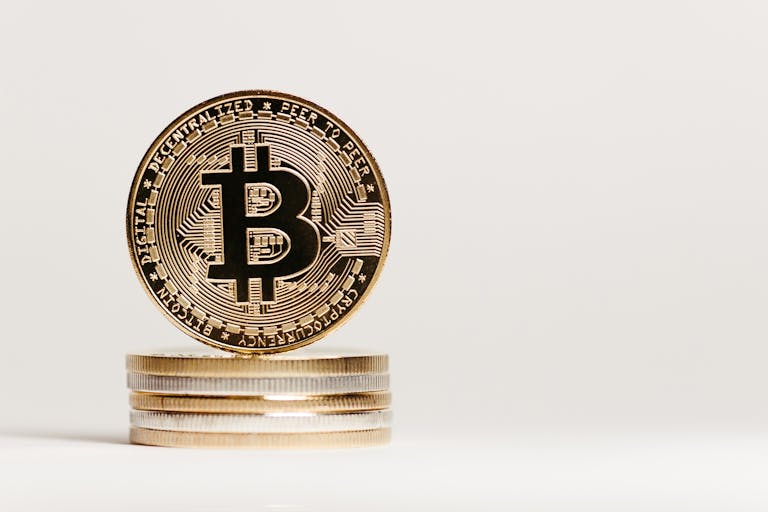In the rapidly evolving world of cryptocurrency, security, regulatory compliance, and trust are critical concerns for both users and platforms. One of the most essential processes for crypto exchanges is Know Your Customer (KYC), a set of procedures designed to verify users’ identities and prevent illicit activities. As the crypto industry matures, KYC requirements have become a standard practice, shaping the way users interact with exchanges and influencing the broader adoption of digital assets. This article explores what KYC is, why it matters, and how it impacts the crypto ecosystem.
What is KYC?
KYC is a regulatory framework used by financial institutions to authenticate the identity of their customers. Originally designed for traditional banks, it has expanded to include cryptocurrency exchanges to combat money laundering, terrorist financing, and fraud. The goal of KYC is to ensure that platforms understand who their users are, what their financial activities are, and whether they pose a risk to the system.
For crypto exchanges, KYC often involves collecting and verifying personal information from users before they can trade, withdraw funds, or access advanced features. This process is typically mandated by anti-money laundering (AML) regulations enforced by governments and financial authorities worldwide.
Common KYC Requirements on Crypto Exchanges
While specific requirements vary by exchange and jurisdiction, the following are the most widely used:
-
Personal Information
Users are asked to provide basic details such as their full name, date of birth, contact information, and sometimes occupation. This helps exchanges verify the user’s identity and assess risk profiles.
-
Government-Issued Identification
- Proof of Identity: A government-issued ID (e.g., passport, driver’s license, national ID) is required.
- Proof of Address: Documents like utility bills, bank statements, or official letters to confirm the user’s physical address.
-
Facial Recognition and Selfie Verification
Many platforms use live facial recognition technology or require a selfie to match the photo on the ID, ensuring the person submitting the documents is the actual owner.
-
AML Checks
Exchanges screen users against global sanctions lists, watchlists, and other databases to detect any links to illicit activities.
-
- Additional Verification for High-Value Accounts
Some platforms require enhanced due diligence (EDD) for users with large balances or frequent transactions, such as submitting more detailed documentation or explaining the source of funds.
- Additional Verification for High-Value Accounts
Why KYC Matters for Crypto Exchanges
Crypto exchanges must implement KYC to comply with legal obligations and maintain the integrity of the market. Here’s why it’s so important:
-
Regulatory Compliance
In the U.S., for example, the Financial Crimes Enforcement Network (FinCEN) requires crypto platforms to adhere to KYC/AML rules under the Bank Secrecy Act (BSA). Similar regulations exist in the EU through the Fourth and Fifth Anti-Money Laundering Directives (AMLD), and in other regions like Japan, Singapore, and Australia.
-
Preventing Financial Crimes
KYC helps block transactions involving illicit funds, hackers, or fraudsters. It reduces the risk of exchanges being used as tools for money laundering or financing terrorism.
-
Building Trust
By verifying users, exchanges demonstrate a commitment to security and transparency, which is crucial for attracting institutional investors and institutional clients.
-
- User Protection
KYC can prevent identity theft and unauthorized account access, safeguarding users’ private keys and funds.
- User Protection
Challenges and Controversies Around KYC
Despite its benefits, KYC has faced criticism and challenges in the crypto space:
-
- Privacy Concerns: Some users dislike sharing personal data with third-party platforms, fearing data breaches or misuse.
-
- User Experience: The process can be time-consuming and cumbersome, deterring new users from joining.
-
- Barriers for the Unbanked: Strict KYC policies may exclude individuals without access to traditional banking systems or official identification.
-
- Global Variability: Regulatory requirements differ by country, making it difficult for exchanges to maintain a uniform process.
In response, some platforms have experimented with decentralized identity solutions or privacy-preserving KYC methods (e.g., zero-knowledge proofs) to balance compliance and user privacy.
How to Navigate KYC on Crypto Exchanges
For users, completing KYC is often a necessary step to access services. Here’s how to approach it:
-
- Prepare Documents: Ensure you have a valid ID and proof of address ready.
-
- Be Accurate: Provide truthful information to avoid account suspension or legal issues.
-
- Understand the Process: Some exchanges use third-party verification services like Jumio or Onfido, so familiarize yourself with their requirements.
-
- Check for Alternatives: If an exchange is too strict, explore platforms that offer relaxed KYC protocols (e.g., decentralized exchanges or privacy-focused services).
However, note that exchanges with minimal or no KYC requirements often face higher risks of security vulnerabilities or regulatory scrutiny.
The Future of KYC in Crypto
As the industry grows, KYC is likely to become even more integrated with emerging technologies:
-
- AI and Machine Learning: Automated systems to detect fraudulent activity and streamline verification.
-
- Blockchain-Based Identity: Using decentralized identifiers (DIDs) and self-sovereign identity (SSI) systems to let users control their data.
-
- Regulatory Evolution: Governments may introduce stricter rules or standardized global frameworks to address cross-border compliance.
Some experts argue that KYC could paradoxically boost adoption if implemented efficiently, as it reassures users and regulators alike. Others believe that overreliance on KYC could stifle the decentralized ethos of cryptocurrency.
Conclusion
KYC requirements are a cornerstone of the crypto industry’s efforts to align with traditional financial systems and foster trust. While they add friction for users, they also create a safer, more transparent environment for trading. As regulations evolve and technology advances, the balance between compliance, privacy, and usability will remain a key challenge. For users, understanding KYC processes and their purpose is essential to navigating the crypto landscape responsibly.
For exchanges, investing in robust, user-friendly KYC solutions isn’t just a legal necessity—it’s a strategic move to build long-term credibility and scale in a competitive market.
FAQs
-
Can I use a crypto exchange without KYC?
Some platforms, like decentralized exchanges (DEXs) or certain international services, allow limited functionality without KYC, but most major exchanges require it for full access.
-
What happens if I refuse KYC?
Your account may be restricted, preventing withdrawals, large transactions, or certain features.
-
Is KYC mandatory everywhere?
No. KYC laws vary by country, but many jurisdictions require it for registered exchanges.
-
What if my KYC is rejected?
Exchanges may ask for additional documents or clarification. Repeated failures could lead to account termination.
-
- How secure is my data during KYC?
Reputable exchanges use encryption and secure storage, but users should research a platform’s privacy policies before submitting sensitive information.
- How secure is my data during KYC?
By staying informed and proactive, users can ensure a smooth experience while supporting the industry’s move toward legitimacy and sustainability.







